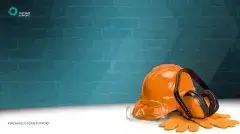When they find irregularities or do not agree with certain classifications, you need to update your classification or file an objection against the Customs Authorities’ findings. When you use the wrong classification, the result can be that you pay too much or that you don’t pay enough import duties, this can affect your business. Read on, or contact one of our consultants to check you are risk-free in your Goods Classification today.
How Goods Are Classified
Goods are classified according to the Harmonised System. The World Customs Organization sets out the classification rules. Each Chapter and Section contains specific information regarding classification. The classification of a good is based on its use, size, composition, how it’s made, and many other parameters. An example where things can go wrong is the classification of a rear-view mirror for vehicles subjected to 4% import duties. General parts for vehicles are subject to 3.5% import duties. The difference in import duties may therefore be detrimental to customs.
Determination of customs classification for your goods is a complex activity. Failing to comply with the general interpretative rules can form a serious threat to the continuity of your business. This is where a classification specialist can support, advise on, or review your commodity codes.
What If Your Goods Are Not Classified Correctly
To ensure all your goods are classified properly, you need the right internal processes and procedures to ensure they are working correctly. The question is not if the Customs Authority will find out that you used the wrong code, but when. This goes for AEO-certified companies as well: the question is not if you will be audited, but when. When they do, you should be ready and confident you are compliant.
From the pressure and speed of everyday business to the lack of the right knowledge, or internal classification processes an incorrect classification is easy to miss if you are not an expert. Our experts are on hand, to bridge the gap, they can help you classify new goods or audit your existing classifications.
While it may seem that the two parts are similar, there can be minute differences that have an immediate effect on the classification. With car parts, the difference can be to make and model, material, application and many more variables related to the part. We helped this customer by checking part of their database with master data. They have over 100,000 different SKUs. We audited a sample of 50,000 different SKUs and re-classified items when needed.
- Data collection: you send us (part of) your database with master data and any other information we might need to classify your goods
- We go through the database and categorise and bundle the goods, and check their current classification.
- We check and improve all product descriptions based on our findings and ensure each line has the right HS Code. We document the classification number, the rules that were followed, and an explanation of the classification.
The Benefits of Having a Specialist Classify Your Goods
When an experienced specialist has classified your goods, you can rest easy. You will be fully compliant and in control regarding the classification of goods. When you have specialists handling your classifications, you will have no issues when classifications are updated by the Customs Authority, which happens twice a year. Future changes in classification can have a significant impact on the validity of your current classification. A specialist can also help you document the processes used for classifying goods. Well-documented processes make it clear to the authorities why certain choices were made.
Contact one of our specialists if you have any questions about goods classification or need support.














